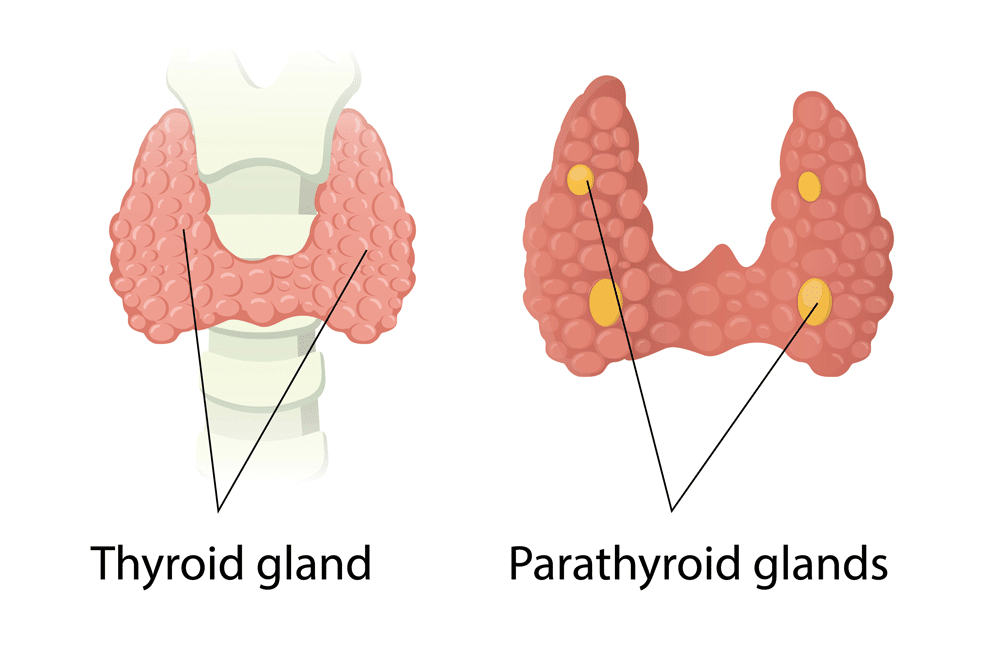TREATMENT
Parathyroid Surgery
TREATMENT
Parathyroid Surgery
Excellence in Parathyroid Care
There are four parathyroid glands located behind the thyroid gland in the groove between the trachea (windpipe) and the esophagus (swallowing tube). They regulate the amount of calcium in the blood. When calcium levels are low, the parathyroid glands release parathyroid hormone (PTH), which takes calcium from the bones. The parathyroid glands stop production of PTH when there is a sufficient amount of calcium in the blood. This feedback system keeps calcium levels within normal ranges when the parathyroid glands are healthy.
Hypercalcemia is when blood calcium levels are abnormally high. The most common cause of hypercalcemia is overproduction of PTH in one or more glands.
Indications
Parathyroid glands produce parathyroid hormone, which controls the level of calcium in the blood. When diseased parathyroid glands are the cause of high blood calcium levels, you may need surgery to remove them.
Surgical Experience
Our dedicated team performs parathyroid surgery with precision and care, ensuring optimal outcomes for our patients. Here’s what you can expect during the procedure
- Sestamibi, a radio-tagged protein, is injected into the veins on the morning of surgery.
- Surgery is conducted under general anesthesia to ensure patient comfort and safety.
- A small incision is made in the lower part of the neck, minimizing surgical impact.
- The procedure typically takes approximately one hour.
- Most patients are able to return home on the same day as the surgery, promoting a comfortable recovery process.
Risks and Considerations
While parathyroid surgery is generally safe and well-tolerated, it’s important to be aware of potential risks and complications, which may include:
Need for Reoperation
Sometimes the parathyroid tumor is extremely difficult to find and sometimes the tumor is not in the neck but in the chest. A second operation may be necessary in such cases.
Voice Change
Possible injury of the nerve to the vocal cord, which may cause temporary or permanent hoarseness.
Low Calcium
It is counterintuitive, but when the abnormal gland is removed, the normal glands take time to start producing hormones, and your parathyroid level and calcium levels may drop. You will require post-operative calcium medication temporarily but could be permanent in rare circumstances.
Scar
The smallest possible incision is used and a plastic surgery technique for closing the wound is used to prevent a noticeable scar, but it is impossible to make a skin incision without causing a small scar.
Bleeding
This is unusual for minimally invasive parathyroid surgery, but if it happens, the skin may turn a red or blue color, the neck will swell, and it will be painful. If this occurs, notify your physician right away.
Infection
Very low risk. Antibiotics are not routinely prescribed post-operatively.
Conclusion
In conclusion, a parathyroidectomy is an effective and well-established procedure for addressing the symptoms and side effects of high blood calcium levels. At Century ENT, we are dedicated to providing you with the highest standard of care and expertise in parathyroid health. Trust us to guide you through your journey to optimal parathyroid health. Contact us today to schedule a consultation and take the first step toward improved well-being.

